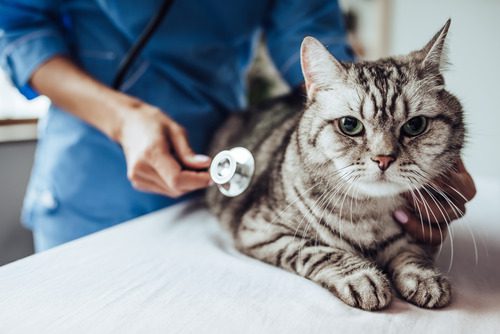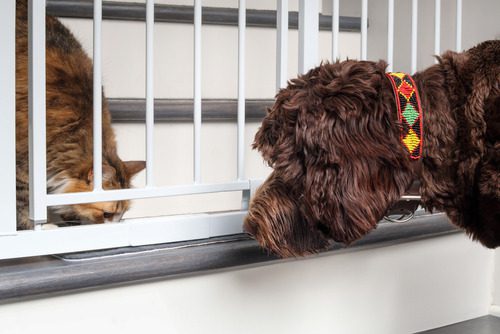Understanding How Cats Get Worms
Cats are curious creatures, exploring every nook and cranny of their environment, which sometimes leads them into less-than-sanitary situations. It’s these adventures that can expose them to various types of worms, a common health issue many cat owners face. At Brown Veterinary Hospital in Terre Haute, IN, we see firsthand the effects of worms on our feline patients. This blog will highlight how cats contract worms and what you, as a caring pet owner, can do about it. If you suspect your cat might be affected, please call us at 812-645-0715 or book an appointment online for a thorough examination.

The Types of Worms in Cats
Cats can be affected by several types of worms, each with its own way of making your cat its host. Understanding these types can help you recognize the signs and take swift action.
- Roundworms: The most common type found in cats, roundworms can grow quite long and live in your cat’s intestines. Kittens can get them from their mother’s milk, while adult cats may ingest them by eating infected rodents or coming into contact with feces.
- Tapeworms: These are segmented parasites that also reside in the intestines. Cats typically get tapeworms from ingesting fleas during grooming or eating infected prey.
- Hookworms: Smaller than roundworms, hookworms latch onto the intestinal lining and feed on blood, leading to anemia. They’re often contracted from contaminated soil or feces.
- Heartworms: Though more common in dogs, cats can also get heartworms from mosquito bites. Unlike other worms, heartworms live in the lungs and heart, making their symptoms and treatment different.
How Cats Get Worms
The pathways to infection are as varied as the types of worms themselves. By knowing these, you can better safeguard your pet. Unfortunately, kittens can contract worms from their mother, either in utero or through her milk. Outdoor cats or those who live with dogs may encounter infected animals or fleas that carry worm larvae and contract worms as well. A cat’s hunting habit can also expose them to prey like rodents or birds carrying worms. If a cat comes in contact with contaminated soil or feces, they may ingest eggs directly or when grooming.
Signs Your Cat May Have Worms
Knowing what symptoms to look for can help catch an infestation early. If you notice any of these signs, it’s time to visit Brown Veterinary Hospital.
- Visible worms in feces or vomit
- Weight loss or vomiting
- Diarrhea or bloody stool
- Swollen belly
- Lethargy or weakness
Preventing Worm Infestations in Cats
Prevention is always better than cure, especially when it comes to worms in cats. Here’s how you can protect your feline friend.
- Routine wellness exams at Brown Veterinary Hospital can catch and treat worms before they become a serious problem.
- Since fleas can carry tapeworms, controlling fleas on your cat and in your home is crucial.
- Feeding your cat raw meat can increase the risk of tapeworms and other parasites.
- Regular cleaning can help reduce the risk of your cat coming into contact with contaminated soil or feces.
- Limiting your cat’s outdoor adventures can greatly reduce their exposure to infected prey and environments.
Your Partner in Cat Health: Preventing Worms Together
Worms in cats are a common issue, but with the right knowledge and preventive measures, you can keep your pet healthy and happy. At Brown Veterinary Hospital in Terre Haute, IN, we’re here to help every step of the way. Whether it’s a routine check-up, flea control advice, or treatment for worms, our team is dedicated to providing the best care for your cat. If you’re concerned about worms or just want to keep your cat in top health, call us at 812-645-0715 or book an appointment online. Together, we can ensure your cat enjoys a long, worm-free life.
Recent Posts
About Brown Veterinary Hospital
We are here to serve as your partner in keeping your four-legged family member healthy, ensuring you have all the tools you need to provide them with a lifetime of outstanding care. Our animal hospital in Terre Haute offers a full range of services to nurture and extend your pet’s life, from wellness and preventative care to critical care, exotic pet care, and dermatology.





